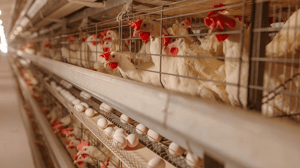Millennials, Gen Z lean into pet ownershipMillennials, Gen Z lean into pet ownership
Younger two generations are more likely to have obtained a new pet during COVID

U.S. pet owners in the youngest two generations — Millennials and Gen Z — are more likely to have obtained a new pet during COVID and to say they have spent more on their pet in the past year, according to a new report from the American Pet Products Association (APPA).
The report looks at how Millennials, the largest segment of pet owners at 32%, differ from previous generations of pet owners and takes a deep dive into the newest Gen Z pet owners.
“The data in our newest Generational Report tells a tale of generational differences when it comes to pet owner attitudes and behaviors: on the one side, the youngest pet owners, Gen Z and Millennials, and on the other, Gen X and Baby Boomers,” said APPA senior vice president of member relations & business development Anne Ferrante. “While there is no doubt all generations of pet owners love their pets and agree pets play an important role in their lives, their attitudes and behaviors reflect the different ways they demonstrate that love for their pets.”
Key findings from the report on pet owners in the youngest two generations – Millennials and Gen Z – include:
• Online purchasing is up across generations but again, Gen Z and Millennials have the highest percentages for purchasing all categories online.
• Pet owners in the youngest two generations are more likely to purchase pet care items online via subscription than their older counterparts.
• These two generations tend to be more willing to try a greater variety of pet products, including different types of food, treats and toys.
Key findings on Generation X and Baby Boomers include:
• Gen X and Baby Boomers are more likely to maintain the pet care attitudes and behaviors they have had for years.
• Pet owners in these two generations are more likely to recognize the social and emotional benefits of pet ownership.
Despite the upheaval of the pandemic, spending levels for Generation X and Boomers remain consistent and they continue to spend more, on average, for big-ticket pet care items such as food and veterinarian care than their younger counterparts.
“It will be increasingly important to watch these trends as Gen Z’s share of pet ownership continues to grow,” noted Ferrante. “Awareness of attitudes and behaviors specific to each generation can help improve understanding of all pet owners and ensure pet product offerings meet the needs of current consumers.”
About the Author
You May Also Like






